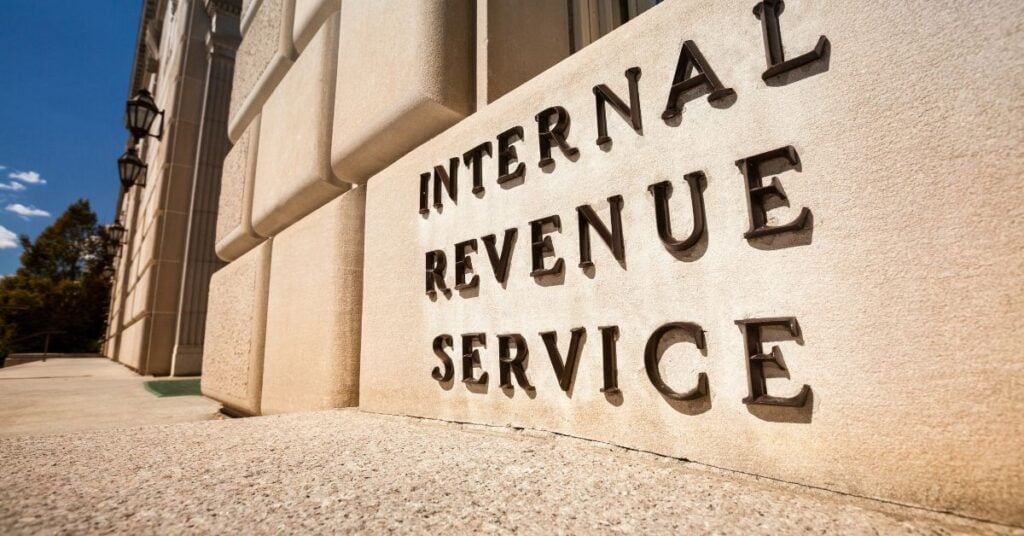
Blog
1298 posts
Minnesota’s Tax Battle of 2023 Signals a Turning of the Tide Against Corporate Tax Avoidance
July 7, 2023 • By Matthew Gardner

The qualified success of Minnesota’s GILTI conformity—to say nothing of the state’s serious dalliance with the game-changing worldwide combined reporting--sends a clear signal that the days may be coming to an end when big multinationals can scare state lawmakers into allowing them to game the tax system.
State Rundown 7/6: Tax Policy Keeping Governors Busy from Coast to Coast
July 6, 2023 • By ITEP Staff

From coast to coast, state governors have been busy inking their signature on a growing list of consequential budget and tax bills...
State Rundown 6/28: Movement on Refundable Credits Remains Hot Topic in 2023
June 28, 2023 • By ITEP Staff

The trend of state lawmakers taking big steps on important tax credits like the Child Tax Credit and Earned Income Tax Credit is coming out in full force this week...
Congressional Republicans Distort a New Report on the Global Minimum Tax
June 22, 2023 • By Steve Wamhoff

The notion that we are better off allowing our corporations to pretend their profits are earned in the Cayman Islands or Ireland simply defies logic and the facts. There is no scenario in which the U.S. would be better by ditching the international agreement that the government already negotiated.

Summer is here and many states nearing the end of their legislative sessions. Temperatures are rising in more ways than one in some state legislatures while others seem to be cooling off.

As the sweet days of summer pass, the scent of jasmine isn't the only thing blowing through the minds of state lawmakers, as tax policy discussions remain at the forefront...
Illinois Voucher Tax Credits Don’t ‘Invest in Kids,’ They Invest in Inequality
June 12, 2023 • By Carl Davis

By allowing their school privatization tax credit to expire at the end of the year, Illinois lawmakers can take a meaningful step toward better tax and education policy, and a clear show of support for our nation’s public education system.
Letter to IRS on Section 1001 Regulation in 2023-2024 Priority Guidance Plan
June 9, 2023 • By ITEP Staff
Read as PDF Re: Recommendation for Inclusion of Section 1001 Regulation in 2023-2024 Priority Guidance Plan To Whom It May Concern, We are writing to respectfully urge that the IRS return to the work it left unfinished in 2019 when it issued final regulations on “Contributions in Exchange for State or Local Tax Credits” (RIN: […]

Across the country, the marathon budget season has held pace, with a steady stream of bills continuing to cross the finish line...

This op-ed was originally published by Route Fifty and co-written by ITEP State Director Aidan Davis and Center on Budget and Policy Priorities Senior Advisor for State Tax Policy Wesley Tharpe. There’s a troubling trend in state capitols across the country: Some lawmakers are pushing big, permanent tax cuts that primarily benefit the wealthy and […]
Debt-Limit Deal’s Provision to Let Tax Cheats Off the Hook Will Increase the Deficit
June 1, 2023 • By Jon Whiten

The latest debt-limit bill in Congress includes a provision to claw back important IRS funding meant to crack down on wealthy tax cheats. This cut in funding would actually increase the deficit while continuing the rig the system in favor of the most well-off.

Short-sighted tax cuts continue to make their way to Governors’ desks this week. In Florida, Gov. DeSantis signed a $1.3 billion tax cut package with $550 million of the tax cuts from sales tax holidays, alone. The Nebraska legislature also sent $6.4 billion in tax cuts to Gov. Pillen’s desk which includes an enormous personal income tax cut that will reduce taxes on the top 1 percent by tens of thousands of dollars.
Congress Should Consider Attaching Work Requirements to the Biggest Tax Break for the Rich
May 25, 2023 • By Steve Wamhoff

Instead of focusing on low-income people who are already mostly employed or facing significant barriers to employment, lawmakers who want to encourage labor force participation should revisit existing tax breaks subsidizing wealthy individuals who live off their assets rather than work.
State Rundown 5/25: The North Star State Leads the Way on Tax Fairness
May 24, 2023 • By ITEP Staff

As we approach the midpoint of 2023, it’s a good time to look back at the progress states have made in the name of tax fairness and equity...

This past week, in statehouses around the country, tax policy decisions are moving fast as budgets were signed and budget plans were released and passed...
States are Talking About the Wrong Kind of Property Tax Cuts
May 11, 2023 • By Brakeyshia Samms, Carl Davis

Concerns over property tax affordability have been at the forefront this year as housing prices have climbed and property tax bills have often increased along with them. As lawmakers mull a range of property tax cuts, circuit breakers are the best possible approach—and these policies are receiving far too little attention in the states.
State Rundown 5/10: Momentum on State Tax Credits Continues to Build
May 10, 2023 • By ITEP Staff

This week, in states across the country the momentum to center improvements to family economic security remains strong...

At nearly every turn, Oregon’s tax policies widen inequality; as a result, the top 1 percent pay less state and local taxes as a share of income than the poorest residents. Taxing capital gains at the local level is an important and exciting move in the other direction – to tax income from wealth and use it to address crucial needs.
The House’s Debt Ceiling Smoke Screen: The GOP Budget Plan Gives Cover for Tax Cuts for the Rich
May 9, 2023 • By Joe Hughes

While it isn’t reasonable in the first place for Congress to debate whether it will pay the bills it has already incurred, some of the same lawmakers who are holding the economy hostage to exact budget cuts have decided to make the conversation even more irrational by proposing to increase deficits with tax cuts that enrich the already rich.
Congress Should Raise Taxes on the Rich, But That’s a Totally Separate Issue from the Debt Ceiling
May 9, 2023 • By Steve Wamhoff

Congress absolutely should raise taxes on the rich and on corporations to generate revenue and improve the fairness of our tax code. President Biden has several proposals to do exactly that. But this is an entirely separate question from whether we should raise the debt ceiling to honor the debts the nation has already incurred and avoid an economic apocalypse.
Minnesota Poised to Enact Landmark Loophole-Closing Corporate Tax Reforms
May 7, 2023 • By Matthew Gardner

With Minnesota poised to enact worldwide combined reporting of corporate income taxes, business lobbyists are pulling out all the stops to make state lawmakers believe the apocalypse is upon them.

While the conversations on the debt ceiling heat up in the nation's capital, debates on state tax policy also continue to unfold in capitol buildings across the nation...
The GOP is Finally Ready to Raise Taxes. (Or, When a Tax Hike is Not a Tax Hike.)
May 3, 2023 • By Joe Hughes

House Republicans recently voted to rescind the green energy and electric vehicle tax credits that were enacted last Congress as part of the Inflation Reduction Act. This newfound willingness to raise taxes stands in contrast to the recent position of almost the entire House Republican Caucus.

Minnesota’s House, Senate and Governor’s office have each proposed their own vision as to how the state should maximize its $17.5 billion surplus and raise new revenue, and these tax plans make one thing clear: Minnesota lawmakers are serious about using tax policy to advance tax equity and improve the lives of Minnesotans.

A compelling new examination over multiple years and multiple states found that infants are more likely to survive to age one in states that raise more revenue and raise it from those most able to pay. Generating taxes from rich people and corporations can help babies make it to their first birthday.
